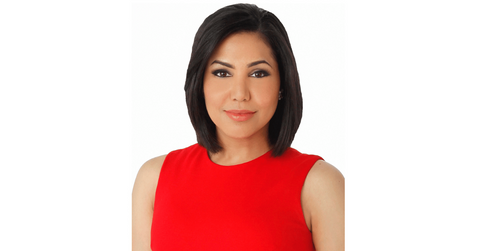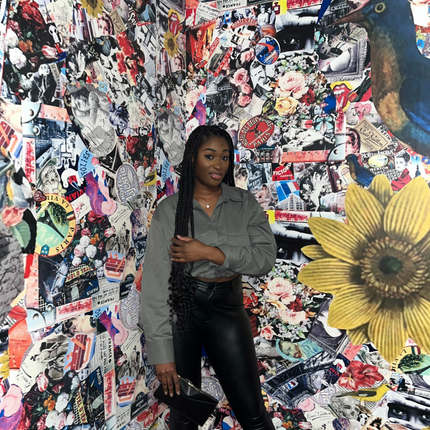Stephanie Ramos serves her country in more ways than one.
She informs her country on what is going on in the world as a national news correspondent reporting across ABC News programs and platforms such as Good Morning America,World News Tonight with David Muir,20/20,Nightline, and ABC News Live. Other ways that Stephanie serves this country? In the U.S. military.
While simultaneously working as a journalist, Stephanie began her career as a U.S. Army Reserve Major. With years of service and experience, Stephanie has contributed valuable reports and shed light on several military conflicts. Not only has she received medals for her honorable service, but she has also produced an award-winning, special titled, To Baghdad and Back, detailing her deployment serving in the Iraq War, 20 years ago.
Her Agenda recently spoke with Stephanie Ramos about balancing both endeavoring careers, what she’s learned from both, and how she’s been able to continuously thrive working in both fields, respectively!
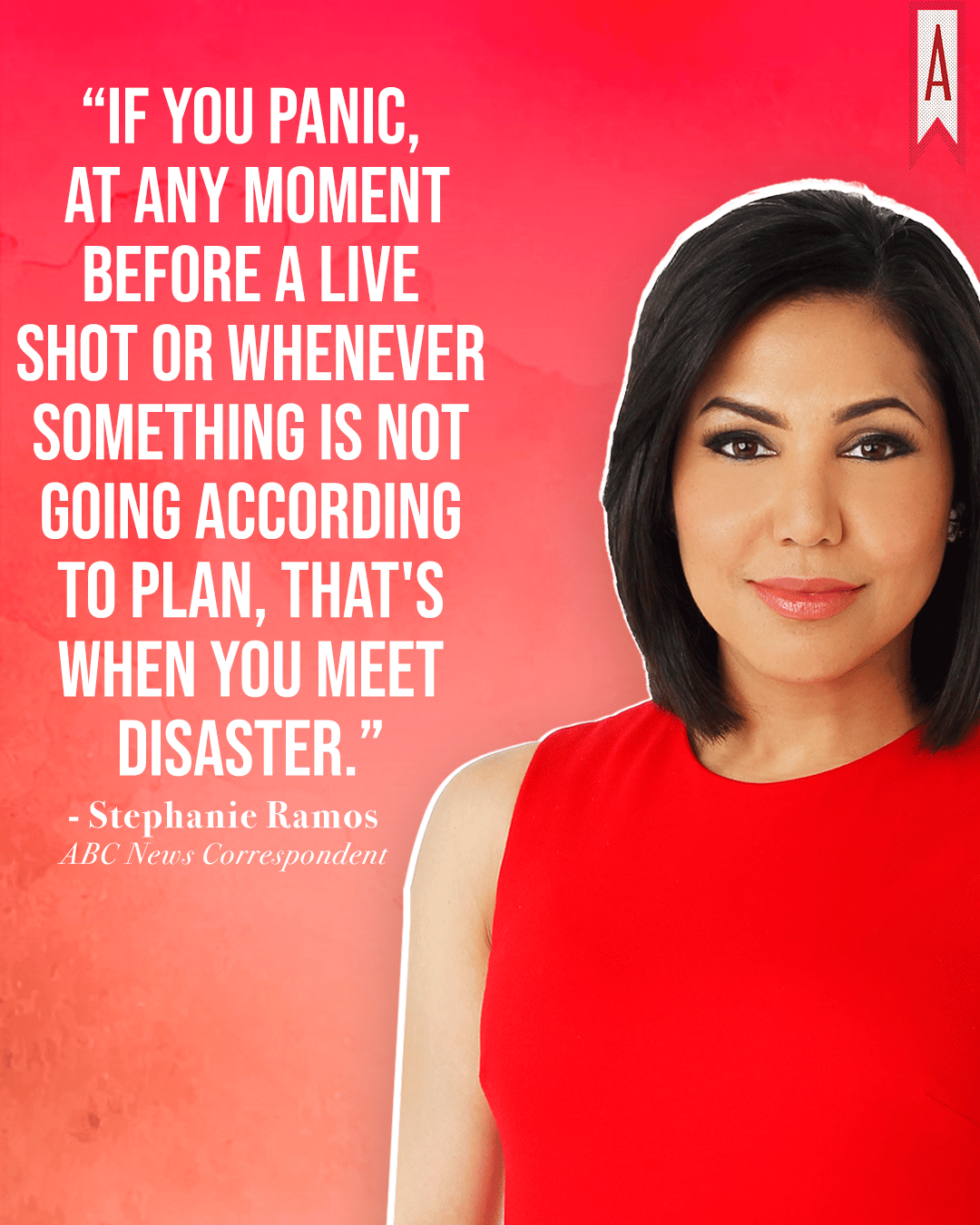
Her Agenda:How do you find the balance between these two very demanding as well as very endeavoring careers?
Stephanie Ramos: It’s still something that I’m figuring out the whole balance of it all. Sometimes I feel like I’ve got a pretty good rhythm. And then other times, it’s like, okay, a lot is going on, and I [need to] take and organize my life. But what’s interesting is that I started both careers simultaneously. I graduated with my master’s in journalism and at the same time, I was getting commissioned as a Second Lieutenant in the US Army Reserve. I always knew that I wanted to go into journalism, the minute I started college and throughout high school. The military was kind of like a last-minute idea. In my last year in college, I said, ‘You know, I want to be a part of a larger organization, part of something that can make a difference in this country… in my country.’
So I think over the years, I got so used to navigating both careers and if I wasn’t able to be in a certain spot for my army drill days, as we call them at my reserve unit, because of the news, I’d pick another day to kind of make that up. And that’s basically how it’s worked for the last 20 years, just navigating these two lanes and making it work. A lot of it has to do with my support system. I wouldn’t be able to do any of it without my family, really, my husband and my mom. My sisters have always flown to whatever city and state I’m in to help out with our kids. And without that village, it really would have been a lot more difficult than then than what it was. So it’s hard to find that balance. But over time, I’ve I guess I’ve been able to [laughs].
Her Agenda:In what ways have you been able to integrate your experiences from the military into the news?
Stephanie Ramos: When you’re in the military, what’s very unique about any service, whether it’s Army, Navy, Marines, Coast Guard, Air Force, etc. is that you are typically put together with random groups of people from all over the country. So everyone has this unique background with different paths that led them to the military. Having that exposure early on, certainly prepared me for the news field where on any given day, I could be sent out to cover a particular story [and] meet different people in different communities And also being [from] New York City, like being born and raised in New York City, [growing up] around different groups of people was very helpful.
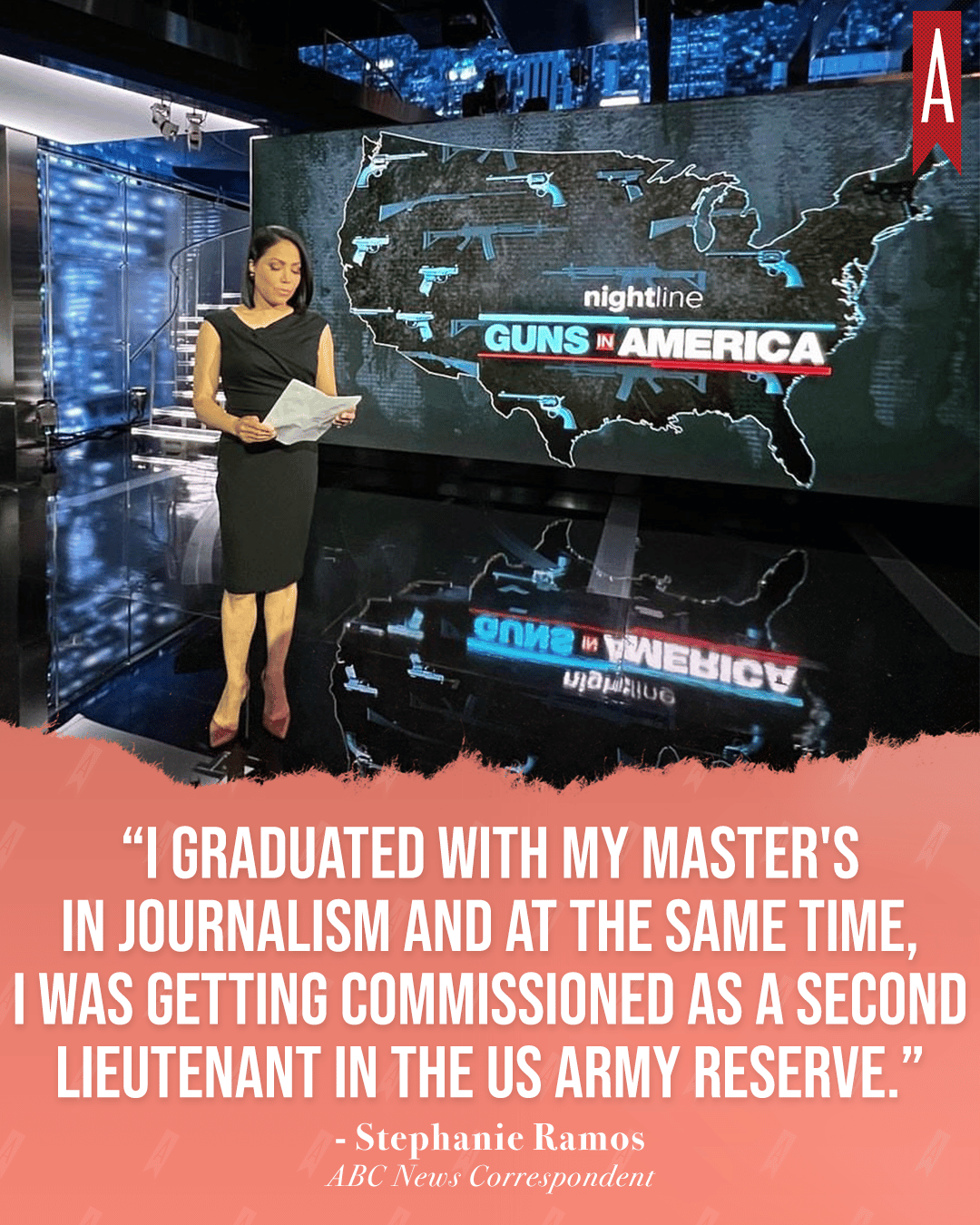
Her Agenda:What are things you’ve learned from each field that you were able to apply within one another?
Stephanie Ramos: Well, I would certainly say discipline and work ethic. I’ve always had a strong work ethic, which comes from my family and my upbringing. But having that somewhat refined during those early military years, definitely helps on the news side. When things are going wrong, and you’re about to be on air in a minute, and things are changing I’ve always had a sense of calm. I think that stems from the military where you can’t panic. If you panic, at any moment before a live shot or whenever something is not going according to plan, that’s when you meet disaster. You have to have that sense of calm because when you’re on the battlefield, you can’t panic when a lot is going on around you, no matter what your job is.
Then on the news side, and looking at the military, being that I’m a public affairs officer now, and working with young soldiers who are new to the Public Affairs field, but who also want to dabble with the civilian media industry, I’ve been able to show them the process of getting a news story on the air or how it is that we put together our different shows. Going back to my unit and answering their questions about how you put a story together it’s not something that they would get elsewhere. It’s very unique because they’re also soldiers, they’re in my reserve unit. I have my army hat on, but also my journalism professor hat on at the same time, so I’m able to give them that education as well.
Her Agenda:How has reporting on military stories and or conflicts helped the community?
Stephanie Ramos: You could only be better by having more information. So it’s, it’s important, for service members to be informed, but also to be a community that we serve, to be informed as well.
Her Agenda: I watched your ABC sit-down interview joined by other veterans who also served in the Iraq war 20 years ago. Knowing what you know, now, what’s something that you would have done differently serving during that time?
Stephanie Ramos: You know, I don’t know, that’s an interesting question! I don’t think I’ve ever thought of that before. There were so many Iraqis that we worked with and young children that we worked with, and for a period of time, when I redeployed and returned to the States, there was a contact person for this group of Iraqi Boy Scouts and Girl Scouts who we remained in contact with for a bit, but over the years lost contact. That’s one thing that I look back on, and I wonder ‘How are those kids doing?’ I wonder, ‘Where are they?’‘Are they still in the country?’ ‘Do they ever come to the States? Did they go to another country?’ And that’s something that sticks with me because we worked closely with them.
And I have so many pictures of the kids that we worked with. They were just absolutely adorable, and happy and joyful, which kind of stunned me in a way. Because they were in the middle of a war, and they were so aware of it. They knew that their country was in a constant fight. But yet, they still hadn’t lost that innocence and that joy. When I flew back a year later to the States, I remember looking out the window of the plane and thinking ‘What is going to happen to this country? Was it worth it? Was it worth us being there? What’s going to happen to those kids?’ So if I could do it all over again, I would try to get more contact information for the folks that were there and that we were working with, because I still wonder about them so many years later, and I feel like I don’t know how we would be able to reconnect.
Her Agenda: Israel, one of the veterans you interviewed during the sit-down, had asked if the experience was worth it, and you’ve answered yes to him. Could you elaborate more on why?
Stephanie Ramos: I think that if you if there was even a spark of a difference that I was able to make in the lives of either those kids, or the Iraqis, or the adults that we worked with, or anybody that was there during that time, if there’s a spark of a difference that I’m just even unaware of then I would say yes, as far as my experience goes!
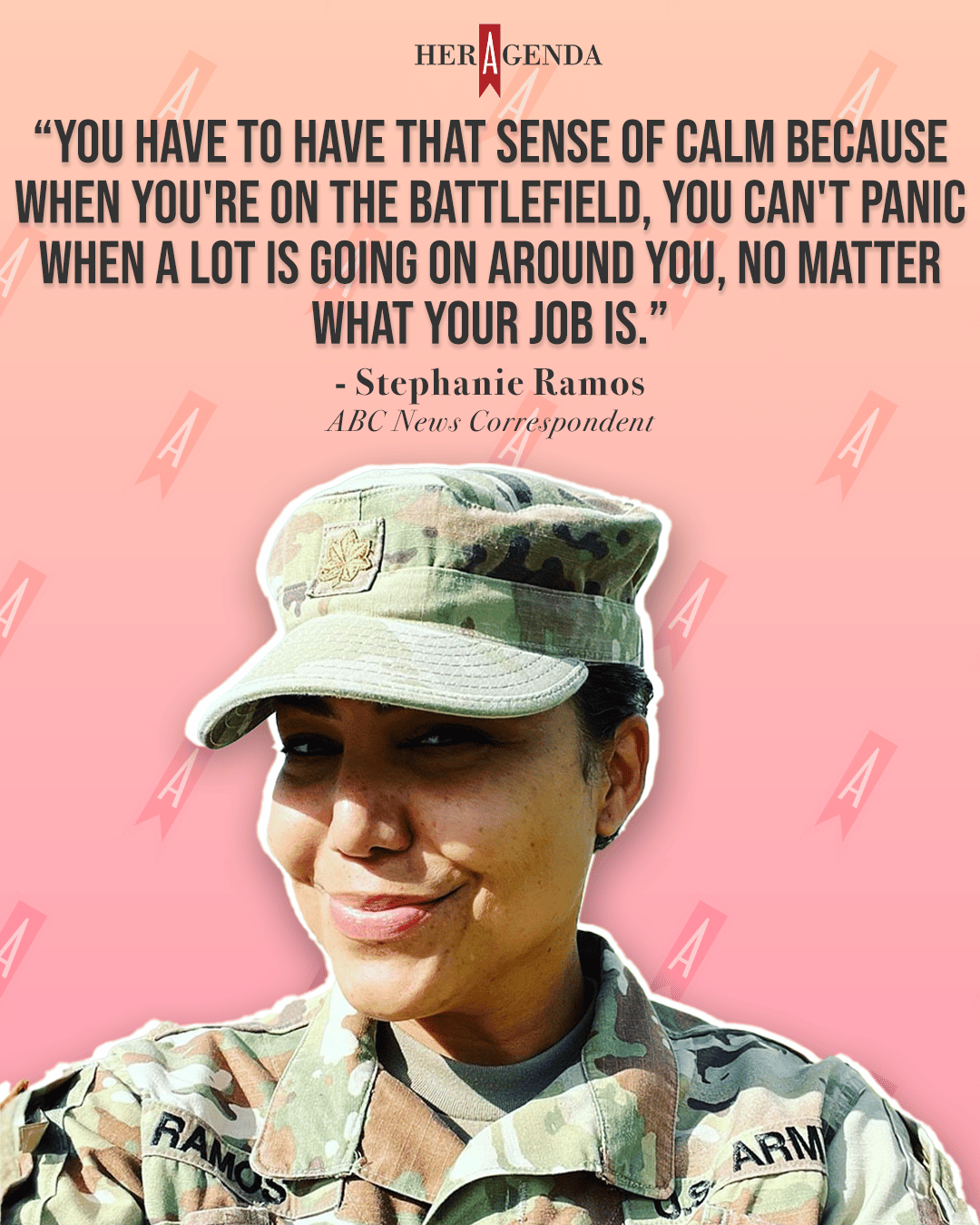
Her Agenda: To be an anchor/reporter, and as well as a lieutenant, both of these are very prestigious positions. How do you think people in both of your roles perceive you whenever you’re contributing your work?
Stephanie Ramos: I think it adds a level of respect for many. [When I was younger] I just saw it as a regular job. It was like well, that’s one job and this is my other job. And it’s funny to say this, but I don’t really like being in the spotlight too much [laughs]. So early on, it was kind of like I don’t get what the big deal is. This is my job as a journalist, but then this is my job as a soldier. It’s what I signed up to do. It’s my duty. I was kind of in that military mode of, you know what this is, this is normal. But I think over the years I recognize that there’s so much sacrifice not only on my behalf but on my family’s behalf. And hearing that recognition and how much respect people have for the military is appreciated. It just makes it sweeter.
My peers are very [supportive]. I am tremendously grateful for that. None of this would be possible without the support of not only my family but also my employer. Especially in the TV industry, to be able to have a spot there and reach that dream that I longed for, for so long [means a lot]. But then I also get to be a major in the US Army Reserve, which was another dream. I’m absolutely blessed. But I’m thankful that my colleagues recognize that and have a deep respect for the military as a whole.
[Editor’s note: This interview has been edited for length and clarity.]

